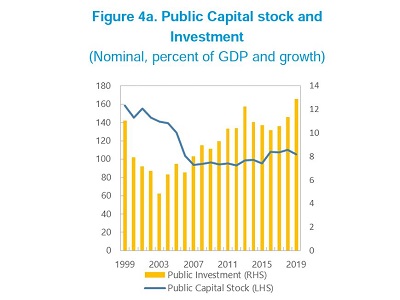A new technical report by the International Monetary Fund (IMF) released today advised Rwanda to improve its public investment efficiency mainly by working on quality and access to its infrastructures.
“Rwanda scores well against the IMF methodology that assesses public investment efficiency, but there is still significant room to improve. The IMF has developed a methodology to assess the efficiency of public investment through the development of an efficiency frontier. A hybrid indicator for infrastructure efficiency compares a composite of quality and access indicators to the public capital stock,” the technical report stated.
“On this measure, Rwanda sits at the public investment efficiency frontier. However, as Rwanda’s capital stock grows, Rwanda will need to improve both the quality and access to its infrastructure to remain on the efficiency frontier. Given that Rwanda is anticipated to have high rates of investment over the next several years to reach its NST objectives, addressing gaps in public investment management would help to increase the efficiency of capital spending and allow Rwanda to remain at the frontier,” the report suggested.
In summary the report also stated that while measures of public investment access are mixed in Rwanda, impressions of the quality of infrastructure far exceeds those in peer countries. “…Rwanda faces challenging infrastructure needs as it is a landlocked country with complex geography. Consequently, Rwanda is one of the highest-cost destinations in the world for a shipping container to reach. Access to public education and drinking water infrastructure lags other low-income countries, though this has improved significantly over the past decade.”
“Rwanda performs more strongly on measures of access to health infrastructure, outperforming peer countries on access to hospital beds. Measured against other sub-Saharan countries, Rwanda performs well in the design and effectiveness of public investment management institutions. Rwanda also performs strongly when compared with emerging market economies,” it said.
“Measures of institutional design show how well Rwanda rates in terms of its existing laws and regulations, as well as the formal guidelines and instructions issued by the government to implement these laws. The Public Investment Management Assessment (PIMA) diagnostic tool also measures how effectively, in practice, the government implements and enforces these laws and regulations. On both measures of the strength of institutional design and effectiveness, Rwanda performs well, though more strongly on design than on effectiveness,” the IMF technical reportstated.

